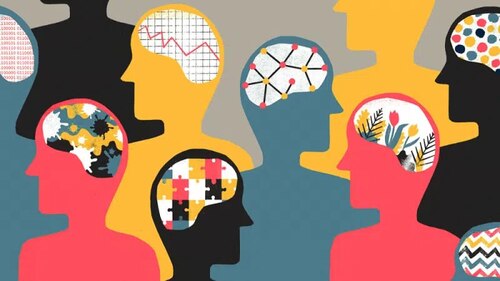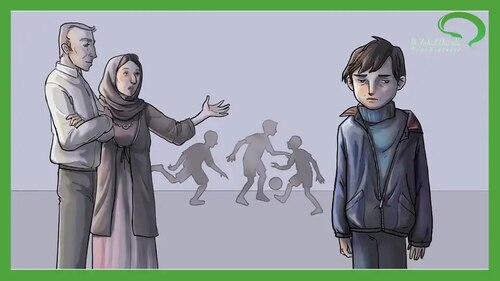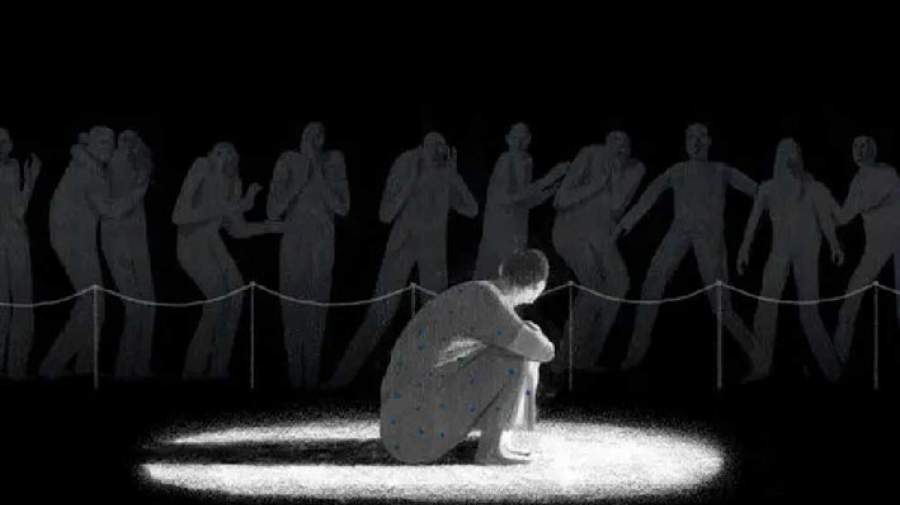Aso Asaadi
In medical and scientific terms, neurological disorders are known complications of the nervous chain, the brain, the cerebellum, and diffuse nerves which includes the specialty of neurology in particular, and the collection of these more or less mental complications is called: mental illness.
Mental illnesses include "emotional and physical disorders, behavioral disorders as well as mind disorders". An example of behavioral disorder is ADHD in children, an example of emotional disorder is depression, and an example of mind is confusion.
What is commonly known as neurological illness actually refers to mild mental illnesses such as anxiety, depression, low-level confusion, and some risks. Still, the less known mental illnesses are the complications in which the patient's relationship with the realities of the world around them is disrupted, like "schizophrenia, autism, Parkinson's, etc."
Anxiety and depression are the most common conditions and also the most common reasons for visiting a doctor.

History of mental diseases
For hundreds of years, societies treated people who suffered from mental disorders cruelly. There was an old idea in the past that attributed mental illness to Satan and supernatural forces. In ancient times, to treat mental illness, the patient's body was subjected to severe pain, beatings, and starvation to replace the devil and hunt him out of the person's body.
Sigmund Freud, the neurologist and founder of psychoanalysis, was one of the first psychologists to introduce a new method of treating mental illness and established psychoanalysis on this basis.

The reasons
In fact, we cannot define only one cause for mental illness, because human beings are physical, mental, and social beings. Each of these three factors can be a cause of mental illness. As examples of each of these, “heredity and genetics, pregnancy problems and head trauma are examples of physical factors, conflicts and inconsistencies in the individual's mind to solve problems are psychological factors, as well as the overall relationship with others like family, neighborhood, school, and workplace, are social factors.” Each of these three main factors has a mutual impact.

Medication therapy
Over the past few decades, many useful medicines have been discovered for these conditions, such as antidepressants and anti-anxiety drugs. However, the use of these drugs should always be under medical supervision and in one full course of treatment because occasional and intermittent use will not help and may be harmful. Total medications cannot completely cure mental problems, but they can largely remove their effects and help the individual to lead a normal life.

Psychopharmacology
Use the psychologist-patient relationship to reduce symptoms. In this process, the patient's past experiences and events are reviewed to get to know themselves and find the root cause of the problems that have caused the mental disorders.
In addition to these two methods of medication, assisting patients and involving them in simple daily activities at the family and community levels can contribute to some extent to medication and on the other hand to their acceptance by society.

The way of prevention
We have learned that many factors cause mental diseases, so this issue must be considered and dealt with appropriately to prevent them. Examples include prevention of physical factors, good nutrition and health of the mother during pregnancy, precautions and prevention of trauma to the baby during birth, awareness and prevention of childhood mucus and infections, timely vaccination results, and prevention of trauma, the child's head during infancy and later, as well as the care and control of the child's feeding, etc.
The most important social framework of any person during childhood is of course the family, where the child's earliest mental state is formed, so parents should try to have a healthy environment in every area. Having a proper and appropriate relationship between parents and children, where each person's responsibilities and duties are well defined and the child can predict the rewards and punishments for their actions, as well as the consensus of parents on the child's education not to get two-way messages, are crucial for this purpose.
Developing a sense of independence and responsibility at the right time and appropriate support can play a positive role in building hope and self-confidence in a child. Paying attention to children's needs such as rest, entertainment, and healthy games, as well as understanding and appreciating the needs of different developmental stages, such as childhood and adolescence, and appropriate behavior with these needs by parents and child education officials can have a great impact on preventing mental diseases.
The media can also play a positive and negative role in this issue.









